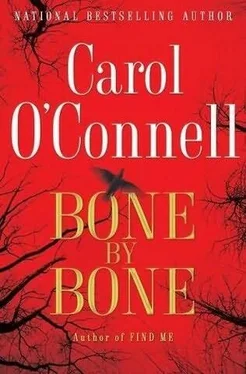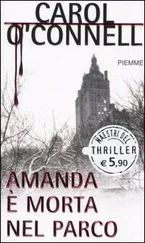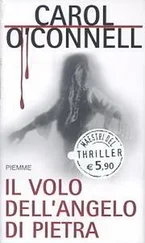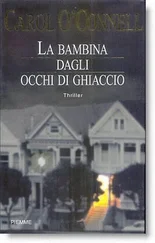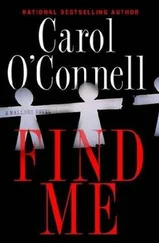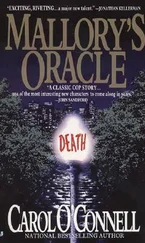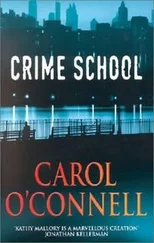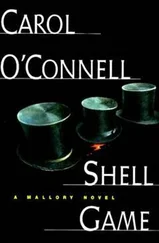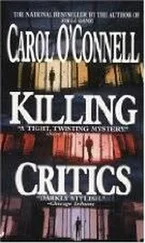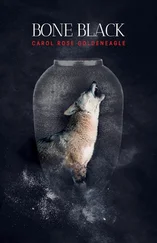Payback was coming.
"Let's return to the case at hand… your dead brother. Poor Joshua." Swahn settled into the nearby chair and stared at his cane, hefting its weight in one hand and paying special attention to the heavy silver handle. "You're right. This is a good weapon. And, since you favor the idea of death by bludgeoning, that tells me there were no bullet holes in Josh's remains. Too bad. You see… the seclusion factor always troubled me. Privacy for a murder can be had in any enclosed space. Why would the killer pick a meeting place in the deep woods? Obviously, he wasn't worried about the sound of gunfire. No gun. Maybe he didn't want anyone to hear the screams. Some murders, the crudest, the most perverted kind, require more privacy-more time. I was hoping it was a quick death. Apparently… it wasn't."
First blood from a master of retaliation.
Oren settled to the floor and sat there-very still. His own scream was an interior noise that only he could hear.
And Swahn was not done with him yet.
The man was leaning toward Oren and into that range for exchanging ugly little secrets, almost whispering when he asked, "Did your brother seem apprehensive that day? Josh asked you to come with him, didn't he?"
No. In fact, it had been Oren's idea to go along on that hike.
"So you started out together that morning," said Swahn. "And then you left your little brother. You left him there all alone in the deep woods. I always wondered why."
Oren closed his eyes. He was not remembering it; he was reliving it. From the moment they entered the woods, Josh only wanted to get away from his older brother.
"Miss Puce wouldn't allow me to question you when you were a teenager." Swahn leaned closer to his guest, too close. "You were in very bad shape in those days. After Josh disappeared, you were always running off into the woods. Sometimes it took days for the townspeople to find you. What drove you, Mr. Hobbs? Was it guilt? Didn't you just want to die?"
That part was true-still true.
A second pot of coffee had been delivered to the tower room by the maid, Hilda.
Sarah Winston eyed it with chagrin. She opened the drawer in her bedside table and pulled out an empty bottle. Turning to the open door, she called out to her daughter. "This was full when I went to bed last night. You poured it out, didn't you, Belle?"
Isabelle Winston stood outside on the deck with a telephone in hand, its long cord trailing a few feet beyond the doorway. She barely paid attention to her mother. The phone's receiver was pressed to one ear, and she could not listen to both of her parents at once-not with the other distractions of hummingbirds hanging in the air, dive-bomber starlings and the piping whistles of orioles. She ended the call when her mother joined her outside.
A bird came to light on the older woman's shoulder, a common enough occurrence, but her daughter always marveled at it. Sarah turned her face to the lark and mimicked its short song of flutelike notes. The bird sang back to her and took flight. Isabelle was the one with an ornithologist's credentials, but her mother was so well acquainted with these wild things that they bid one another hello and goodbye.
"They never come to me." Isabelle stretched out one hand to a nearby feeder. Wings unfurled and flapping madly, the birds flew off to the next seed holder farther down the railing. "They never light on me."
"And they never will," said Sarah Winston, as if they had not held this conversation many times. Endlessly patient, she said to her only child, "But this is a good thing, Belle. You're so animated, so alive. No bird would ever mistake you for a tree limb or a post-a lifeless thing." Never spoken were the final words, like me.
Yet Isabelle always heard them.
"Did your father tell you who was taken away in that coffin?"
And now Isabelle realized that her mother knew nothing about the bones. There was no radio in the tower. There never had been. Her mother only listened to the birds. "The coroner's van came for Josh. They found his remains."
"At the judge's house?"
"Yes. Someone's been leaving the bones on the old man's porch late at night."
The coffee cup crashed to the deck. Birds flew off in alarm, screaming. And her mother screamed.

I found out what they want." Dave Hardy stood at the door to the sheriff's private office. He raised his voice to be heard above the noise from the street-side window. "That maggot, Ferris Monty-he told them you arrested Oren Hobbs."
Traffic in Saulburg was snarling, horns honking. The parking lot was full, and latecomers double-parked in front of the building. One reporter brazenly pulled up onto the sidewalk. Cable Babitt stood at the window, frowning. "I suppose it would be wrong to shoot them." He glanced back at his deputy. "Son? Just make them all go away."
"How?"
Cable joined him at the door and pointed to another deputy in the outer room. "Take John with you. Go out there and ticket the crap out of all those cars and vans. Then you can just let it slip that Oren's gone somewhere else-anyplace that's not Saulburg."
Outside on the street, while writing tickets and slapping them on windshields, the new recruit, Deputy Faulks, flirted with the pretty woman who tagged after him, microphone in hand. When they were within earshot of two other reporters, he answered her twice repeated question. "My guess? Hobbs is probably hiding out in the Coventry Library."
The newswoman tilted her head to one side. "You're kidding, right? Why would he go there?"
Her colleagues were turning their heads, staring at the deputy, and he called out to them, "It's the perfect hideout! Nobody in Coventry ever goes to the library!"
Three reporters raced for their cars. Others in the pack picked up the scent and followed. But one camera was still filming when Deputy Faulks turned around to receive a bloody nose from Dave Hardy's fist.
"Cop fight!" yelled the cameraman.
The radio was tuned to a local jazz station. The delivery boy had come and gone. And civility was provisionally restored at William Swahn's house.
Oren sat on the floor, eating a slice of hot pizza and drinking a second cold beer with his host. He had not given up any details of the sheriff's case, not a word about finding the bones of a second victim. For now, the prospect of a multiple homicide was only a rumor on the radio during the newsbreak.
Swahn appeared to give the idea no weight. "Next, they'll be saying there's a serial killer in the neighborhood."
"Not likely." Oren drained his beer bottle. "There might be thirty serials at large in a country of six million square miles."
"Right. What are the odds of one finding his way to Coventry? Although," said Swahn, in the tone of an afterthought, "Josh could've been killed to conceal another murder."
The man was left to make what he could of the silence. Oren had not come to this house to collaborate with a suspect. After reading the last interview, he laid it down among the others scattered on the floor all around him. "I don't pull motives out of thin air. I like facts."
Anyone with a secret could have a motive for murder." Swahn opened another envelope and pulled out a thin stack of photographs. "Take your secrets for instance." One by one, he laid out the glossy prints like cards dealt from a deck.
Oren looked down at pictures of himself at the ages of fifteen and sixteen. In one print, his hair had only covered his ears. In the next, it grazed his shoulders. Each one showed him walking down one street or another, oblivious to the stares of middle-aged women turning his way.
Читать дальше
